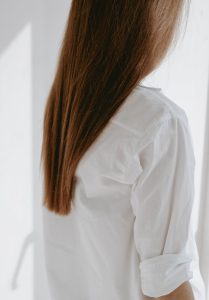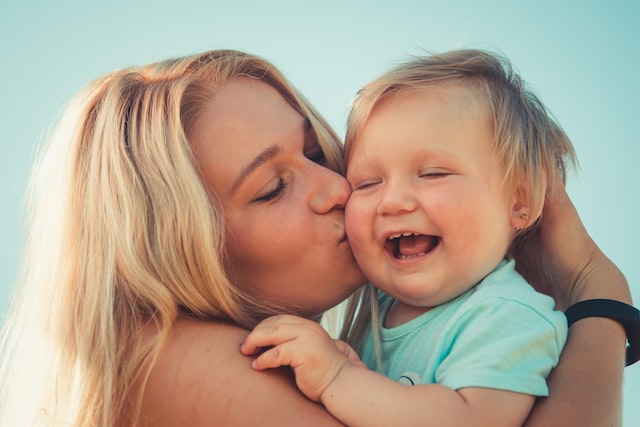Are you tired of feeling like a plain Jane with your straight hair, or a wild child with your curly locks? Well, fear not my fellow Singaporeans, because we’re about to embark on a hair-raising journey through the land of different hair types.
From the sleek and smooth straight hair, to the bouncy and carefree wavy hair, to the wild and untamed curly and coily hair, we’re going to explore it all.
But before we dive in, let me ask you this: Are you ready to discover the hair type you never knew you had? Hang tight, because this is going to be one wild ride!”
4 Common Types Of Hair In Singapore
In Singapore, you can find a wide range of hair types. The most common types are straight, wavy, curly, and coily hair.
Straight hair is characterized by its lack of curls or waves and tends to be shiny and smooth. Wavy hair has a slight wave pattern and can be a combination of both straight and curly hair.
Curly hair has a defined curl pattern and can be either loose or tight curls. Coily hair is the tightest curl pattern, often described as kinky or afro-textured.
These hair types are not exclusive to Singapore, but can be found in many other places as well. Understanding the differences between these hair types can help in identifying the best hair care routine and styling options for an individual.
Straight Hair

Straight hair is one of the most common hair types in Singapore. It is characterized by its lack of curls or waves and tends to be shiny and smooth. The hair shaft is cylindrical in shape, which allows the hair to lie flat and fall straight.
There are several factors that can contribute to having straight hair, including genetics, lifestyle, and hair care routine. People with straight hair often have a higher density of hair follicles and a lower level of hair growth hormones, which contribute to the straightness of the hair.
When it comes to styling, straight hair can be easily managed and styled in many ways. Popular hairstyles for straight hair include sleek ponytails, bobs, and straight-haired bangs.
With straight hair, it is easy to achieve a polished and put-together look. However, straight hair can also be prone to damage and breakage, so proper hair care is important. This includes using hair-specific products and avoiding excessive heat styling tools.
Wavy Hair
Wavy hair is another common hair type in Singapore. It is characterized by a slight wave pattern, which can range from loose and bouncy to defined and tight. Wavy hair can be a combination of both straight and curly hair, making it a versatile hair type that can be easily managed and styled.
Wavy hair can be caused by a variety of factors, including genetics, hormonal changes, and lifestyle. People with wavy hair often have a higher level of hair growth hormones, which contribute to the wave pattern.
When it comes to styling, wavy hair can be easily managed and styled in many ways. Popular hairstyles for wavy hair include beachy waves, loose curls, and messy buns.
With wavy hair, it is easy to achieve a natural and carefree look. However, wavy hair can also be prone to frizz and tangling, so proper hair care is important. This includes using hair-specific products and avoiding excessive heat styling tools.
Wavy hair can also be straightened or curled to change the style, but this requires heat styling tools, which can damage the hair if not used properly. A good hair care routine and regular trims can help to keep the hair healthy and maintain the natural wave pattern.
Curly Hair

Curly hair is a unique and distinct hair type that is characterized by defined curls or spirals. Curly hair can range from loose and bouncy curls to tight and coiled curls. The hair shaft is oval in shape, which causes the hair to curl and form spirals.
Curly hair can be caused by a variety of factors, including genetics, hormonal changes, and lifestyle. People with curly hair often have a higher level of hair growth hormones, which contribute to the curly pattern.
When it comes to styling, curly hair can be challenging to manage and style, as the curls can easily become frizzy and tangly.
Popular hairstyles for curly hair include defined curls, bantu knots, and twist-outs. With curly hair, it is easy to achieve a unique and distinctive look.
However, curly hair can also be prone to dryness and breakage, so proper hair care is important. This includes using hair-specific products and avoiding excessive heat styling tools.
Proper hair care for curly hair includes using a sulfate-free shampoo and a deep conditioner, and avoid brushing the hair when dry.
Also, regular trims are important to maintain the shape of the curls and prevent split ends. Embracing the natural curls and finding the right styling products can help to enhance and define the curls.
Coily Hair
Coily hair, also known as afro-textured hair, is a tightly curled hair type that is characterized by tight and defined curls or kinks. The hair shaft is usually flattened or twisted in shape, which causes the hair to curl tightly and form an “S” pattern.
Coily hair can be caused by a variety of factors, including genetics, hormonal changes, and lifestyle. People with coily hair often have a higher level of hair growth hormones, which contribute to the tightly curled pattern.
When it comes to styling, coily hair can be challenging to manage and style as the curls are tightly coiled and can be fragile.
Popular hairstyles for coily hair include afro, twists, braids, and bantu knots. With coily hair, it is easy to achieve a unique and distinctive look.
However, coily hair can also be prone to dryness and breakage, so proper hair care is important. This includes using hair-specific products and avoiding excessive heat styling tools.
Proper hair care for coily hair includes using a sulfate-free shampoo, a deep conditioner, and a leave-in conditioner.
Also, regular moisturizing is important as coily hair can be prone to dryness. Embracing the natural curls and finding the right styling products can help to enhance and define the curls.
Avoiding tight hairstyles and using a wide-tooth comb or your fingers to detangle the hair can also help to prevent breakage.
Regardless of the type of hair you have, it is important to take good care of them to prevent any potential hair concerns in the future.






